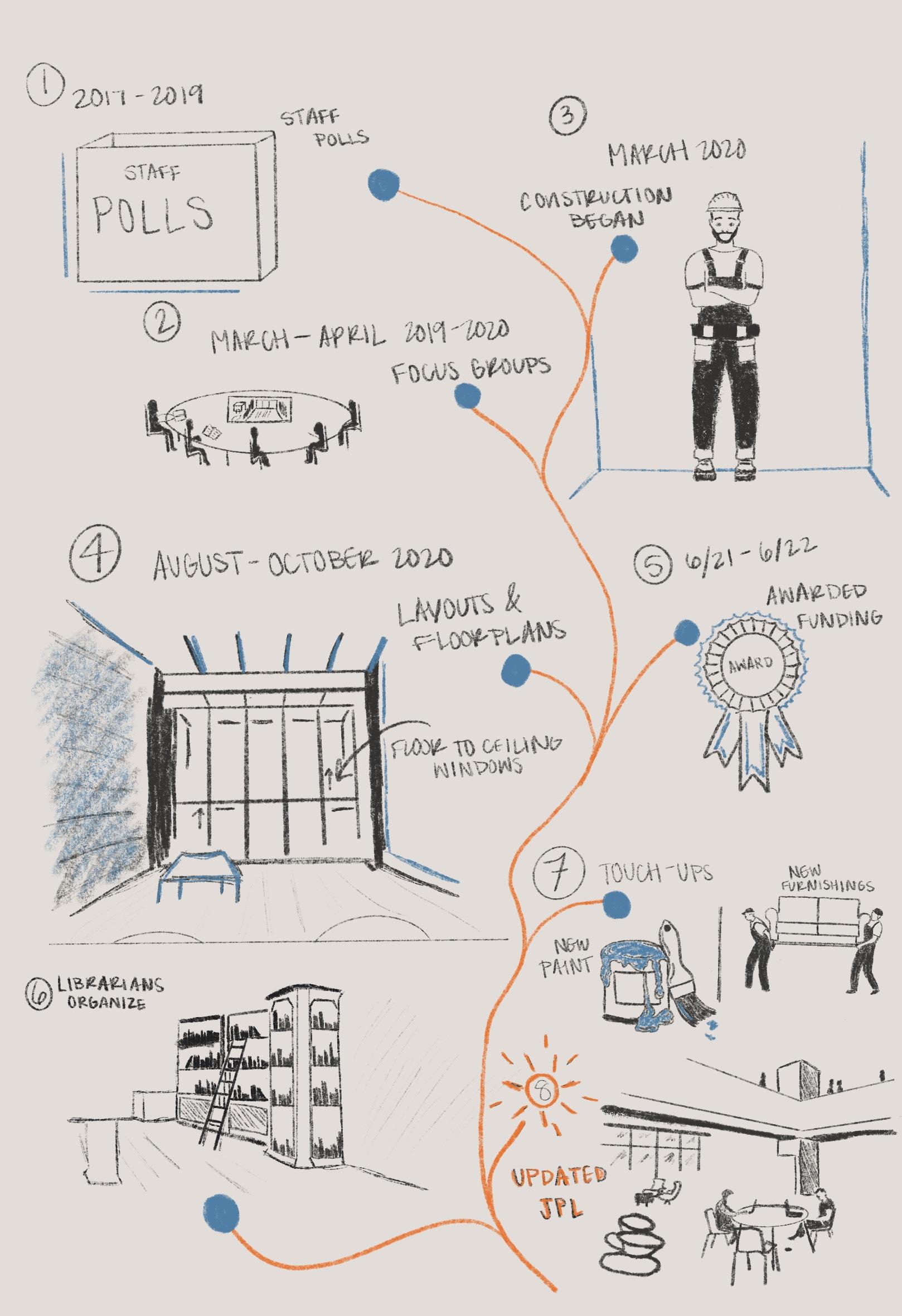
1 minute read
Next phase of JPL renovation includes cutting down on book storage
from Vol. 65, Issue 2
by The Paisano
By Gauri Raje News Editor
Last semester, phase one of the Heart of the Campus Project was completed with the installation of floor-to-ceiling windows on the John Peace Library’s (JPL) third floor. As previously reported by The Paisano, the project’s next phase involves evaluating on-site books, removing stacks, adding new furnishings and recarpeting. This will be followed by cutting down on the university’s in-house book collection.
University Librarian Dean Hendrix and his team have collected feedback about the project from students multiple times, including through LibQUAL and focus groups with students.
“We’re talking about valuable space … students telling us they need more study space; students telling us they need more collaboration space,” Hendrix said. “We have this physical building … the JPL is a block of concrete; you can’t blow out a wall and easily create more space. So we have to work within the confines of the floor plan.”
The team has also presented its plans and data about the library’s collection usage to various groups, including the
Academic Council, the Faculty Senate and Student Government Association.
“We’ve talked to all these constituents and continue to talk to them,” Hendrix said. “We’ve had individual conversations with faculty members that may have some concerns.”
“We [had] some faculty that said [they’d] … like to have an individual meeting, but once we had those individual meetings [and] they got to ask their individual questions about their individual research area, then they felt fine with it,” Hendrix added.
A disciplinary approach is being taken when considering and evaluating which books will be housed at the JPL. For example, disciplines like chemical engineering, whose materials Hendrix describes as being mostly digitized and online, would not require having a considerable on-campus inventory.
On the other hand, materials pertaining to disciplines like languages and philosophy, where “monograph is still an important part of the research process,” will not be removed in considerable numbers.






